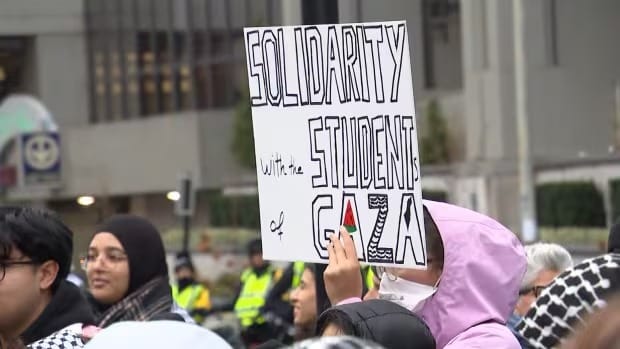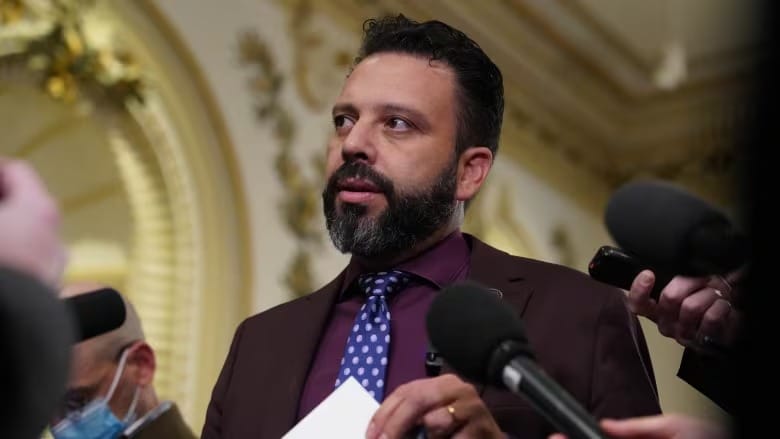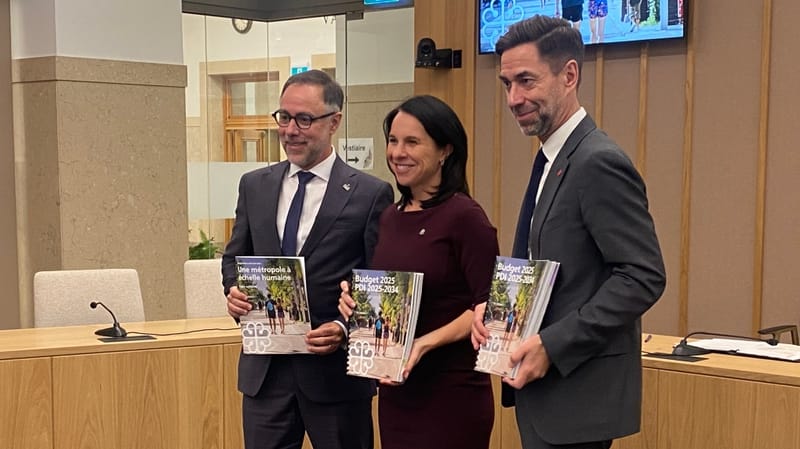His racial profiling complaint against a Quebec police officer still isn't resolved after 10 years
Complainant thought he lost in 2020, until he was contacted by CBC News

When Emmanuel Abraham filed a racial profiling complaint nearly a decade ago against a Terrebonne, Quebec, police officer, he never imagined he’d still be waiting to see if the officer would face consequences.
"For me to wait 10 years — that's just beyond crazy, you know?" said Abraham.
Only a small number of racial profiling cases make it to Quebec’s police ethics tribunal, and the lengthy, complicated process deters many people from filing complaints.
In December 2014, Abraham, who is Black, was driving in the Montreal suburb of Terrebonne when a police officer pulled him over and asked what he was doing in the area.
The officer, Const. Stéphanie Lemay-Terriault, said she had checked his license plate and noticed the vehicle was registered to someone living in Montréal-Nord.
Abraham, 18 at the time, explained that his father lived in Terrebonne and that he was heading back to his mother’s home in Montreal. Despite providing proof of insurance and registration, Lemay-Terriault issued him a ticket, claiming his registration was crumpled and illegible.
"I made my stop right, I didn't speed, I talked to her nicely," Abraham recalled. "I called my father right away and we said, 'Ah non, not this time.'"
Abraham successfully contested the ticket and filed a complaint with Quebec’s police ethics commissioner, believing he was stopped because of his race.
In 2020, the police ethics tribunal (Tribunal administratif de déontologie policière) ruled that the stop was justified and not racially motivated. Abraham assumed that was the end of the case.
He had no idea the decision was being challenged through appeals until CBC News contacted him.
"They have my address, they have my email, they have my name. They have everything on me," Abraham said. "They can send me a paper every time she appeals. I didn't get nothing."
'The battle can be long'
Civil rights advocate Fo Niemi, executive director of the Center for Research-Action on Race Relations (CRARR), said he’s never encountered a case taking as long as Abraham’s.
"That delay can be discouraging for a lot of people," Niemi said. "The battle can be long, in part because police officers and police departments don't like to lose, especially when the case involves racial profiling."
Niemi believes the police ethics commissioner's office lacks the resources to move cases quickly.
In Abraham’s case, the officer was cited for ethics violations, including racial profiling, but it took five years for the tribunal to hold a hearing. At the time, random traffic stops were part of an officer’s discretionary authority. Lemay-Terriault testified that she questioned Abraham about his presence in Terrebonne to ensure his address was up to date. The tribunal accepted this explanation.
However, in 2021, the Court of Quebec overturned the tribunal's decision after the police ethics commissioner appealed. The judge found the officer had stopped Abraham “consciously or unconsciously” because of his race or color.
Lemay-Terriault appealed the ruling, but her appeal was rejected last month. She now has 30 days to file another appeal. If no appeal is submitted, the next step will be setting a hearing date to determine sanctions.
Disciplinary Actions Are Rare
A 2023 CBC investigation revealed that very few racial profiling complaints against Quebec police officers result in disciplinary action.
The police ethics commissioner typically seeks conciliation as the first step when handling complaints, and most cases are resolved through this process.
In serious cases involving gross negligence or misconduct, the commissioner can skip conciliation and initiate a formal investigation. If the investigation finds ethical breaches, the case moves to the tribunal, which has the authority to impose sanctions.
Between April 2017 and April 2022, only 11 complaints were brought before the administrative tribunal. Of those, just four resulted in disciplinary action against police officers.





